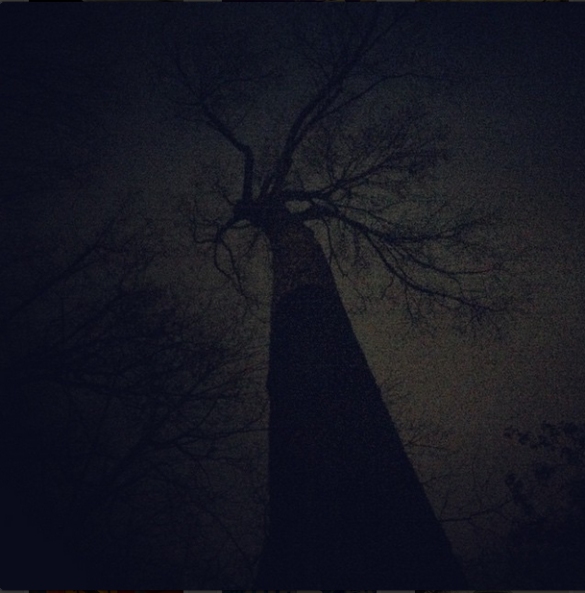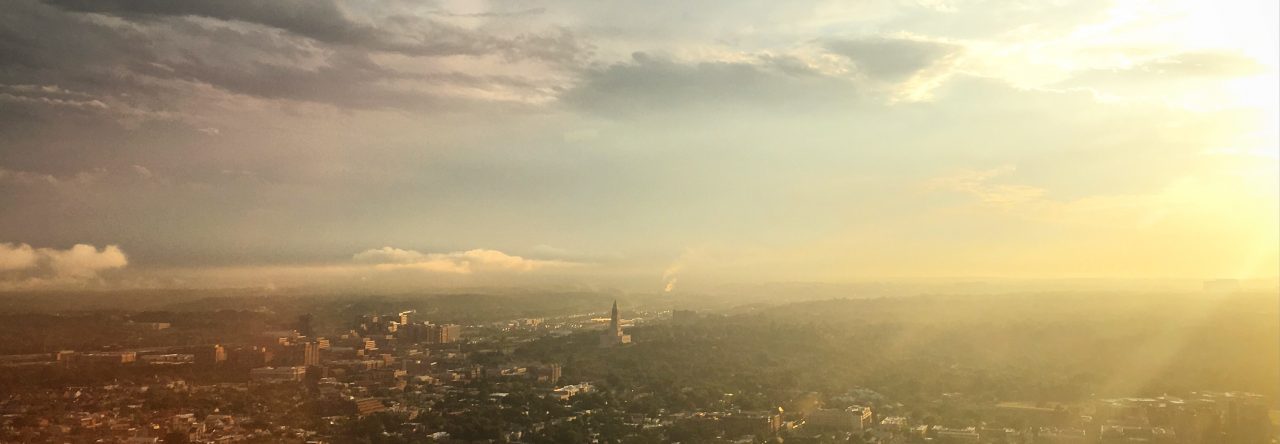
Somewhere, somebody thought it was a good idea to write a prayer service for night. What I never understood until now is that it wasn’t just the literal darkness that occupied their most urgent words for God.
I’m sitting here trying to remember when I was first aware that I was afraid of the dark.
I’m not afraid of the dark anymore, of course, at least, not in any kind of paralyzing way. Occasionally I’ll be downstairs in our house, with all the lights off, and I’ll scoot up the steps with an extra boost of adrenaline with the notion that someone–something–was lurking in the shadows, waiting for me.
I know it’s silly. But such a feeling gave me a well of empathy for our daughter when she went through a spell demanding we leave her closet light on through the nighttime. And while we can at least extinguish that bulb these days, she still sleeps with a nightlight. A few, actually. Most nights, we say a little prayer that she sleeps through the night without bad dreams.
The Episcopal Church has a handful of different services, but one I’m particularly fond of is Evening Prayer. It’s a simple church service meant to be offered every single night (few churches do this; ours only offers daily evening prayer during Lent), a slow reflection of the day, a reading of the assigned scripture, a handful of prayers.
But the liturgy for Evening Prayer, its prescription for nighttime order, is revealing. “Darkness is not dark to you, O Lord; the night is as bright as the day,” says the 139th Psalm, which is quoted in the service. “I am the light of the world” follows.
Light and dark. “Be our light in the darkness, O Lord,” one of the prayers goes, “and in your great mercy defend us from all perils and dangers of this night.”
Another petition asks for “protection through the coming night,” seeking God’s safe passage through to the morning.
Surely this intense focus on night time and its dangers, this vulnerability rooted in the dark chasm in every day, grew from a collective fear of the dark. Think about nighttime in an age before smart phones, before telephones in general, or hospitals, or electricity, or street lights, or Doppler radar, or relative peace. Night used to be a pretty scary time.
Even the first edition of the Episcopal Book of Common Prayer, published in 1549, begins its version of evening prayer with the cry, “O God, make speed to save me!”
Until recently, I felt it was a bit dramatic to say as much at evening prayer, a bit too over the top to sit in a modern church building, my busy schedule and task list of things to do when I get home tucked in the back pew of my brain, and say these words with real conviction.
Now, forgive me for telling a few of the burdens I’ve been carrying this spring.
Three friends of mine have buried their parents this spring. One’s father passed away suddenly, unexpectedly. Another’s mother had a massive stroke one weekend, lingered a brief amount of time, and faded out. The last’s mother died less than a year after his father’s passing.
Another high school friend, one who was in the little group of us who went to the prom together, lost her husband in a car accident. They had three children.
A dear family that I know from my days as a teacher lost their beautiful, eight month-old daughter after a long illness.
Those were all tragic deaths. A long-time college administrator I’d worked with for several years had some time to prepare for his end, and his passing was somewhat a relief for those of us who hated to see him in any state of discomfort.
But Sunday night, a friend I worked with on our local school bond committee died in his sleep. He was 66, but his energy and devotion to our community made him seem much, much younger.
Now, less than 48 hours later, a second friend from that committee has died. He was a town commissioner in Mooresville, another tireless advocate for education. On his re-election campaign’s Facebook page, his last post refers to this very blog.
Friends, children, spouses, parents. Lost. What strange life frame have I entered? Where are the days when each week carried a new friend’s engagement announcement, when my Facebook channels were thick with pregnancies or newborns?
This latest death has shaken me. I don’t know if it’s more the circumstances or the fact that this spring has planted more friends into the ground than any spring I can remember, but I cannot help but sense the darkness around me, closing in like a quiet tide.
Right now, with all of this so fresh, that darkness is best described as hurt. I hurt for my friend Mac, and for the wife and children he left behind, and for Frank and his family, and for precious Avery and her parents, and Chris and his wife and children. For Will. For Cheryl and the father she lost. For Pam and the mother she lost. For Brian, whose parents are now gone.
Darkness is frightening. Pain and hurt are difficult. This season of grief has grown deeper and deeper. And more than ever, I’ve felt compelled to crack open the order for Evening Prayer, run my fingers over the pages, and turn loose my heart to God. It doesn’t seem so silly anymore.
Because darkness, literal and figurative, is overwhelming. There are a lot of lonely souls lying down to sleep tonight, especially those whose worlds are emptier now that their beloved companions are extinguished. And then there’s me, my vulnerability charged by a myriad losses on the edges of my life, lingering outside my son’s door, listening to him breathe, running a hand through the blackness until it reaches the small of my wife’s back. My arms hold my parents’ shoulders tighter.
And in my mind, I hold this evening prayer’s intercession ever close:
Keep watch, dear Lord, with those who work, or watch, or weep this night, and give your angels charge over those who sleep. Tend the sick, Lord Christ; give rest to the weary, bless the dying, soothe the suffering, pity the afflicted, shield the joyous; and all for your love’s sake.
Amen.






Leave a Reply